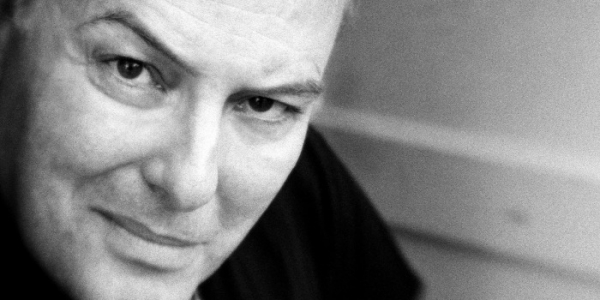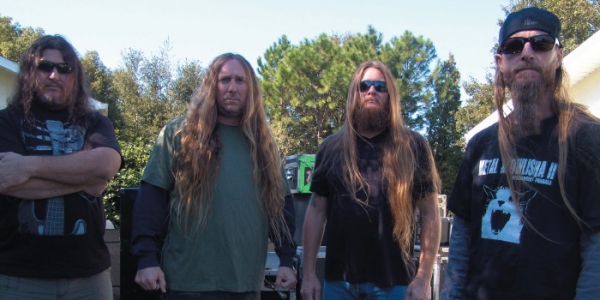“I’m grateful my parents didn’t change the TV channel when bloody Vietnam war footage came on, or African-Americans being hosed by the cops or attacked by German shepherds because of the colour of their skin,” Biafra says. “So how could I not be radicalised when this is all going on?”
Born Eric Boucher in the college town of Boulder in Colorado (a town which would find a modicum of publicity as the location for the Mork And Mindy television series in the late ‘70s, coincidentally, at the same time as Dead Kennedys were spearheading the San Francisco punk rock scene), Biafra formed Dead Kennedys with East Bay Ray, Klaus Fluoride and Ted in 1978. Biafra had taken his nom de plume after the short-lived African state formed during the Nigerian civil war of the late ‘60s. The name of his fledgling punk rock band was a typically confrontational reference to the assassinated members of the Kennedy family (in 1979 the group would draw the ire of the establishment when it held a concert on the 16th anniversary of John F Kennedy’s death).
Dead Kennedys would go on to become one of the most outspoken punk bands, its aesthetic a confronting blend of shotgun garage-punk and Biafra’s polemical observations on domestic and international events from right-wing. In 1983, Dead Kennedys toured Australia; in Adelaide, Dead Kennedys was supported by Grong Grong, whose irreverent punk antics would so impress Biafra that he would feature the band on his Alternative Tentacles label.
“I didn’t even know who they were – I just read in Harry Butler’s DNA fanzine when he described them as The Birthday Party on speed, and I thought ‘this will be generic punk, or will it? I hope not!’,” Biafra recalls. “And sure enough, they turned out to be pretty damn bizarre and not only was it good, this could had the potential to be the Australian Flipper, or even Butthole Surfers in the way they were working things. It’s always great when I see someone and have no idea what they’re going to be like and it’s just amazing, and let alone when it’s that real kind of band when I have to stare in disbelief at what’s going on in a public space!”
In 1985, Dead Kennedys released Frankenchrist, which included a poster featuring sexually explicit artwork by HR Giger. It was to be the beginning of the end for Dead Kennedys. Obscenity charges were brought against the band, and while the trial was not successful, the album was withdrawn from sale in many stores across the United States and the band was crippled by legal costs associated with the trial.
Dead Kennedys eventually broke up in 1987 after releasing the Bedtime For Democracy album. Biafra transferred his energy into spoken word performance, as well as trying to stymie the efforts of Tipper Gore’s Parents Music Resource Centre to censor offensive lyrics. (In the ‘90s, Biafra would fall out with his former band mates – who reformed subsequently without their original lead singer – over royalties and various alleged contractual anomalies.) A few years ago, having been inspired by Iggy Pop’s 60th birthday celebratory concert, Biafra formed the Guantanamo School of Medicine; the group has gone onto release three albums, including this year’s White People And The Damage Done.
My time speaking with is Biafra unfortunately cut short by a combination of malfunctioning modern technology, and a visitor to Biafra’s house; before the interview ends, Biafra has waxed lyrical on the evils of Richard Nixon and Ronald Reagan (“You had the fox in the hen house, and the lunatics taking over the asylum, and the bankers looting the store!”), corporate America (“It’s not capitalism anymore – what they want is feudalism, a new feudalism where the corporations are the barons and the lords, with mad Emperor Ludwig and Ivan the Terribles and their capital, and we’re supposed to live like serfs and peasants and be grateful for it”) and libertarianism (“I have common ground with libertarians on issues like decriminalisation of drugs and taking our military out of places where they don’t beyond, but beyond that they drive me up the wall”) and community responsibility (“the very idea that community is important and that, hey, we might even have more self respect at the end of the day if you gave up your psych med and just gave a shit, that’s a very hard thing to put through”).
Beyond the polemical diatribe, however, Biafra offers his own insights into the vexed definition of ‘punk’. While some have argued that punk is a social movement, for Biafra it’s not that simple.
“I’ve never considered punk to be a movement – a movement is political, and has its eyes on a political prize. Martin Luther King had his eyes on a prize. People with their eyes on all the mining and fracking, even in Australia, there’s a very specific political goal that makes anti-mining, anti-fracking, a pro-planet type movement,” Biafra says.
For Biafra, punk isn’t predicated on an identified goal. “What is the prize with the punk movement?” Biafra asks rhetorically. “More punk? No, that’s culture. Yes, like it or not it’s a consumer culture, even before it was co-opted – we all bought into it because it had so much energy, and the lyrics were cool and it finally rekindled the spirit of rock’n’roll and people loved bands like early Radio Birdman and The Saints, and other bands in the US and Britain were all no longer in a vacuum anymore.”
BY PATRICK EMERY







